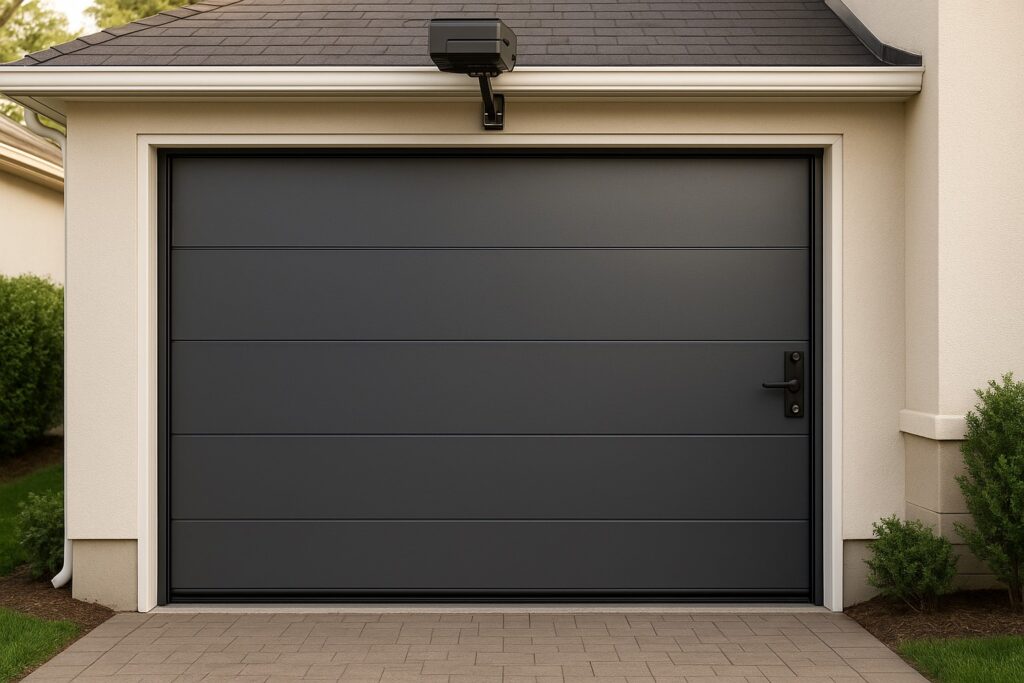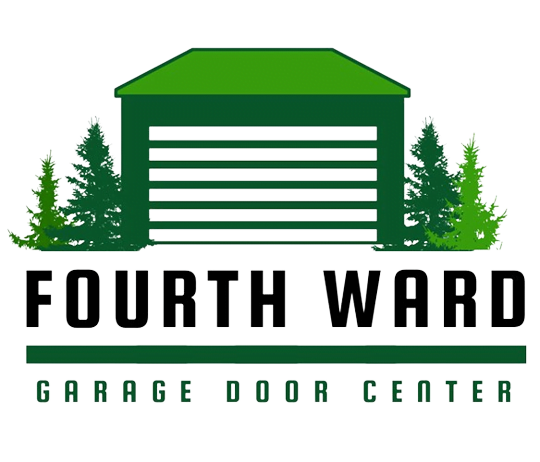Keeping the Heat Out and the Comfort In
On one particularly sweltering day in Houston, a local homeowner reached out to our team at Fourth Ward Garage Door Center. Her garage felt like an oven, and she suspected the problem stemmed from her outdated, single-layer metal door. After a thorough inspection and discussion about her energy bills, we recommended a high-quality insulated door tailored to her home’s specific needs. The results were astounding. Her garage temperature dropped by over 20 degrees Fahrenheit within the first 24 hours, and her next electric bill showed an impressive reduction in overall energy use. This is not just a feel-good story. It reflects a recurring issue we solve for homeowners across the Houston area. Thousands of homes lose precious energy daily through uninsulated garage doors, and over time, that loss adds up to significant costs.
In a city where summer temperatures often exceed 90 degrees Fahrenheit, the battle against heat gain inside your home becomes a year-round challenge. Many homeowners overlook the garage as a key player in their home’s thermal envelope. Without proper insulation, this space can compromise comfort, inflate energy bills, and impact HVAC performance. In fact, the garage is often the largest non-insulated space in a house, making it a critical weak point in your home’s overall energy efficiency system. Modern garage doors with insulated cores provide a critical barrier against unwanted heat and humidity, improving the entire home environment.
If you are considering an upgrade, modern garage doors with insulation offer a strategic solution that combines improved efficiency, curb appeal, and added home value. Whether you use your garage as a workspace, storage area, or extension of your living environment, the right door can make all the difference in both performance and energy savings. By investing in insulation today, you are choosing a long-term solution that helps you save money, improve comfort, and support your home’s overall structural health.
Why Insulated Garage Doors Matter in Houston
Extreme Heat and Humidity
Houston is known for its intense heat and high humidity, especially from May through September. During peak summer months, exterior surfaces like traditional steel garage doors can become superheated, radiating warmth into the interior garage space. If your garage is attached to your home, this excess heat easily transfers through the walls and doorways, placing added strain on your cooling system. This causes air conditioners to work harder, leading to increased energy consumption and faster wear on your HVAC unit.

Energy Loss Through the Garage
The garage often serves as a weak point in the home’s thermal system. Without an insulated door, hot and cold air flow freely into the garage and adjacent living areas. This results in uneven temperatures throughout the home, inefficient HVAC cycles, and higher monthly utility costs. Insulated garage doors act like a protective shell, maintaining indoor temperatures and minimizing thermal exchange. Homes with attached garages are particularly vulnerable, as temperature fluctuations in the garage can significantly affect rooms next to or above the space.
Year-Round Comfort
While insulation helps block Houston’s summer heat, it also proves useful during winter cold fronts. Houston may not experience the same freezing temperatures as Indianapolis or Denver, but occasional cold snaps are not uncommon. Insulated garage doors create a more stable environment by resisting both heat gain and heat loss, which is especially beneficial when the garage houses water heaters, appliances, or sensitive equipment. Maintaining a more consistent internal garage temperature also makes the space more usable year-round. Whether you want to work on your car in January or store food items without risk of spoilage, insulated doors offer a dependable climate buffer.
Understanding R-Value: The Energy Efficiency Rating
R-value is the standard measurement for thermal resistance in insulation products. The higher the R-value, the greater the insulating capability of the garage door system. Think of it like SPF for sunscreen. The higher the number, the more protection it provides. Choosing the right R-value depends on how you use your garage and where it is located in your home.
- R-6 to R-9: Offers basic insulation. Suitable for detached garages or spaces used only for vehicle storage or infrequent access.
- R-10 to R-13: Moderate insulation is ideal for attached garages with living spaces nearby. Helps reduce heat transfer between the garage and the main house.
- R-14 and above: High-performance insulation, recommended for garages used as workshops, gyms, play areas, or additional living space. Excellent for noise reduction and humidity control.
A professional garage door installation service can assess your garage usage and suggest the right R-value for your unique needs. Our certified master technicians often recommend a minimum of R-10 for homeowners in the Houston area to help achieve optimal indoor comfort and energy efficiency. Additionally, many premium doors now offer multi-layer construction with built-in thermal breaks and enhanced sealing systems to maximize insulation benefits.
Types of Insulated Garage Doors for Houston Homes
Steel Garage Doors with Polystyrene Insulation
These garage doors consist of steel panels with a core of polystyrene insulation, similar to rigid foam boards. They are lightweight, cost-effective, and widely available, making them one of the most popular choices among homeowners.
Advantages:
- Provides moderate insulation for mild to hot climates
- Lightweight and easy to install or replace
- Affordable and widely used in residential applications
- Available in many styles and colors to match your home’s exterior
Ideal For:
Homeowners needing standard garage door insulation without high-end performance requirements. This is a great entry-level option for families on a budget who still want better garage climate control.
Steel Garage Doors with Polyurethane Insulation
Polyurethane foam is injected between the layers of steel panels, bonding directly to the surface for a high R-value. This type of door is denser and offers superior performance across the board.
Advantages:
- High insulation values between R-12 to R-18
- Increases door strength and soundproofing
- Helps withstand extreme weather, moisture, and everyday wear
- Energy savings are noticeable almost immediately
Ideal For:
Garages are used frequently or attached to temperature-sensitive areas of the home. This is often the preferred choice for homeowners who value durability, noise control, and long-term savings.
Wood Composite Insulated Garage Doors
These garage doors combine the natural appearance of wood with modern insulation technology. They typically contain polystyrene or polyurethane insulation sandwiched between layers of engineered wood.
Advantages:
- Custom aesthetic and architectural appeal
- Built-in insulation for reliable energy performance
- Durable with proper maintenance and can be refinished
- Available with decorative hardware and windows
Ideal For:
Homeowners looking for elegance, energy savings, and customization options. Perfect for upscale homes or those in historic neighborhoods wanting a more classic look.
Aluminum and Glass Insulated Garage Doors
This design incorporates insulated glass panels within an aluminum frame to create a modern and visually stunning garage door. These are a popular choice for those who value contemporary architecture.
Advantages:
- Double or triple-pane insulated glass options
- Allows natural light into the garage without sacrificing insulation
- Resistant to rust, corrosion, and warping in humid climates
- Optional low-E coatings to further enhance energy performance
Ideal For:
Contemporary homes or commercial garage applications where visual appeal and efficiency meet. Especially valuable in urban settings or as showroom entries.
Vinyl Insulated Garage Doors
Vinyl doors are often chosen for their resilience and built-in insulation properties. They are long-lasting and require very little maintenance.
Advantages:
- Dent-resistant and safe for households with children and pets
- Low maintenance and resistant to moisture, mold, and pests
- Moderate R-values for general energy savings
- UV-resistant finishes help retain color and surface integrity
Ideal For:
Homeowners prioritize durability and minimal upkeep. Often used in areas prone to stormy or coastal conditions where rust resistance is a must.
Thermal Breaks: Small Detail, Big Difference
A thermal break is a physical barrier inside the garage door that prevents heat from transferring between the inner and outer panels. Found in many polyurethane-insulated doors, this feature adds another layer of energy efficiency. Without a thermal break, metal components can act as a conductor, allowing heat or cold to travel right through the door. Think of it as the difference between a single-pane and a double-pane window. This small design enhancement significantly improves the overall thermal performance of the door and should not be overlooked.
When combined with weather-resistant materials and a proper seal, a thermal break becomes essential for homes facing extreme weather conditions like Houston’s humid summers and occasional storms. If your garage is connected to your home or used regularly, a door with a thermal break is a must-have feature.
Importance of Weather Seals in Garage Door Efficiency
Proper sealing plays a vital role in the door system’s overall performance. Even the most insulated garage door loses its effectiveness without solid seals around the edges. Weather seals prevent unwanted air, moisture, and pests from infiltrating your space.
Bottom Seals: Compress against the garage floor to stop drafts, dust, and water intrusion. These are especially important in garages with uneven concrete floors.
Side and Top Seals: Prevent wind, rain, and pests from entering through gaps around the frame. They also help reduce noise and improve door performance.
Threshold Seals: Installed directly onto the garage floor, these seals are effective for garages located on sloped driveways or older foundations.
Maintaining these seals through regular inspections and minor repairs can significantly prolong your door’s life and ensure consistent insulation benefits. Consider scheduling an annual inspection to identify worn or damaged seals and replace them before they cause bigger issues.
How to Choose the Right Insulated Garage Door for Your Home
Consider How You Use the Space
If your garage functions as a hobby room, workshop, or even an extra living space, you should invest in a higher R-value door. For basic storage or infrequent use, a lower rating might suffice. Evaluate how often you use the space and whether temperature stability is important.
Factor in Aesthetic and Curb Appeal
The right door adds value not just in comfort, but also in style. Materials like wood composite or aluminum with glass can enhance the home’s appearance while providing excellent thermal performance. A well-chosen door can complement your home’s exterior, boosting property value and overall curb appeal.
Think About Budget and Long-Term ROI
Modern insulated garage doors may come with a higher upfront cost, but the return on investment is clear. From utility savings to increased home value, this upgrade pays for itself over time. When working with a professional service like Fourth Ward Garage Door Center, you receive both top-quality materials and expert guidance tailored to your home.
Also consider the warranty, materials, and installation services included with your purchase. A well-made door installed by certified technicians will perform better and last longer.
Benefits Beyond Energy Savings
Reduced Utility Costs
Homeowners who upgrade to insulated garage doors often see noticeable drops in their utility bills. The garage, when not properly insulated, acts as a heat sink, especially during the hot Houston summers. This forces your HVAC system to work harder, particularly if your garage shares walls with temperature-sensitive areas like bedrooms, kitchens, or living rooms. A properly insulated garage door reduces the load on your air conditioner, which translates to lower monthly energy costs. According to industry reports, the average homeowner can expect a 10 to 20 percent reduction in overall energy use with an insulated garage door, depending on usage and door placement.
Improved Soundproofing
Insulated garage doors do more than manage heat—they also help control noise. Whether you live on a busy street, near an airport, or simply want to enjoy a quieter indoor environment, insulated doors can significantly reduce the amount of external noise that enters your home. This is especially useful if your garage is used as a home gym, music studio, or workspace. The added insulation also mutes the sound of the door opening and closing, creating a quieter experience overall.
Greater Door Longevity
Insulation strengthens the internal structure of a garage door. This added rigidity helps prevent dents, warping, and panel damage caused by frequent use or external impacts. Stronger doors can also handle harsh conditions such as wind, rain, and humidity more effectively. Over time, this durability results in fewer repairs and extended operational life. Investing in a well-insulated, reinforced garage door is a smart strategy for minimizing future repair needs and costs.
Better Home Resale Value
In the world of real estate, first impressions matter. The garage door is one of the first things potential buyers see when viewing a property. A modern, energy-efficient insulated garage door not only improves curb appeal but also signals that the homeowner values comfort, efficiency, and quality. According to Remodeling Magazine’s Cost vs. Value Report, replacing an outdated garage door with a new, insulated model can offer a return on investment of over 90 percent. That makes it one of the highest-yielding home improvement projects you can undertake.

Debunking Common Myths About Insulated Garage Doors
Myth: Insulated doors are only necessary in cold regions.
Reality: While insulation is essential in cold climates to keep heat in, it is just as important in hot climates like Houston for keeping heat out. Insulated garage doors work year-round by stabilizing indoor temperatures and improving comfort regardless of outside conditions.
Myth: Insulated garage doors are too expensive.
Reality: While they do have a higher initial cost compared to basic non-insulated doors, the long-term savings in energy, maintenance, and home wear-and-tear more than justify the investment. In fact, many homeowners recover their costs in just a few years through utility savings alone.
Myth: Wall insulation alone is enough.
Reality: Insulating only the walls and ceiling of a garage without addressing the door leaves a major thermal gap. The door is the largest moving part of the home and the biggest potential leak point. Complete insulation requires an insulated garage door to close that loop.
Why Professional Installation Matters
Proper garage door installation is a technical job requiring expertise and precision. Attempting a do-it-yourself installation often results in alignment problems, poor weather sealing, or improper tensioning of springs and cables. These issues can compromise safety, performance, and energy efficiency.
Benefits of Professional Installation Include:
- Accurate measuring to ensure a proper fit
- Expert calibration of door springs, rollers, and tracks for safe operation
- Installation of compatible openers and automatic systems
- Ensuring that weather seals and insulation layers are correctly placed
- Preserving manufacturer warranties by meeting required installation standards
When you choose Fourth Ward Garage Door Center, our certified technicians manage every part of the job with attention to detail, customer care, and a commitment to excellence. From residential to commercial garage doors, we bring the same level of professionalism to every project.
Garage Door Maintenance Tips for Lasting Performance
Maintaining your insulated garage door extends its life and ensures ongoing efficiency. Here are essential maintenance steps every homeowner should follow:
- Inspect tracks and rollers regularly: Look for signs of rust, misalignment, or debris buildup. Dirty or worn rollers can make the door noisy or cause uneven movement.
- Lubricate moving parts: Apply a high-quality garage door lubricant to hinges, springs, tracks, and bearings every six months. Avoid using grease or oil-based products, as these can attract dust and gum up the mechanisms.
- Check and clean weather seals: Remove dirt and grime from rubber or vinyl seals around the door. Replace any cracked or brittle seals immediately to maintain insulation performance.
- Test the balance and safety systems: Disconnect the automatic opener and lift the door manually. It should rise smoothly and stay open at about three to four feet off the ground. If not, the springs may be unbalanced and require professional adjustment.
- Schedule annual inspections: A yearly check-up by a certified garage door technician helps identify minor issues before they become costly problems. They will test spring tension, inspect cables, check opener systems, and ensure the entire system is functioning efficiently.
Regular maintenance helps avoid downtime, reduces the likelihood of sudden door failure, and protects your investment.
How Can Fourth Ward Garage Door Center Help You?
At Fourth Ward Garage Door Center, we proudly serve the greater Houston area with unmatched expertise and dedication to excellence. Whether you’re in the market for residential garage doors, commercial overhead doors, or industrial garage solutions, we offer a wide range of insulated options designed to meet your specific needs. Our one-stop shop includes custom garage door installation services, repair and maintenance packages, and around-the-clock emergency support.
Our certified team handles everything from new door selection to seamless installation, ensuring the job is done right the first time. We also provide full support for garage door openers, springs, cables, tracks, and rollers. Every customer receives personalized attention and solutions tailored to their home or business requirements. We understand the unique challenges Houston homeowners face and provide only top-quality materials suitable for our region’s climate.
We are not just a service provider. We are your long-term partner in maintaining a more energy-efficient and secure home. Our clients span neighborhoods across Houston, from family residences and apartment complexes to commercial garages, warehouses, and retail storefronts. No matter your location, property type, or garage door system, we are ready to help.
Call us today at (713) 565-1757 to schedule your free consultation. Discover the difference an insulated garage door can make for your comfort, efficiency, and peace of mind.
Final Thoughts
Choosing the right insulated garage door is more than just an aesthetic decision. It is a smart investment in your home’s energy performance, long-term durability, and everyday comfort. With extreme weather conditions in Houston, every layer of protection counts. Whether you need residential garage door repair, routine maintenance, or a brand-new commercial garage door system, a high-performance insulated option can significantly enhance your quality of life and your property value.
The garage is often the largest entrance to your home and one of its most used access points. It should receive the same level of care and consideration as any other structural element. An insulated garage door ensures better energy efficiency, sound control, and physical security while improving your home’s appearance and functionality.
At Fourth Ward Garage Door Center, we stand by every door we install, every part we replace, and every customer we serve. Let us help you make the best decision for your home, your family, and your budget. We are here to deliver top-quality garage door service with precision, integrity, and long-lasting results.
Reach out today and take the first step toward lower energy bills, increased comfort, and improved curb appeal.
Fourth Ward Garage Door Center
McKinney St, Houston, TX 77010
Phone: (713) 565-1757
Frequently Asked Questions (FAQs)
1. Do insulated garage doors help reduce noise from inside the garage as well as outside?
Yes, insulated garage doors work both ways. They reduce outdoor noise from traffic or neighbors, and they also contain sounds from inside the garage, making them ideal for workshops, home gyms, or music practice areas.
2. Can I add insulation to my existing garage door instead of replacing it?
Yes, there are retrofit insulation kits available for many standard garage door types. However, these may not provide the same R-value or long-term durability as a professionally installed insulated garage door.
3. How long does an insulated garage door typically last in Houston’s climate?
With proper maintenance, insulated garage doors can last 15 to 30 years, depending on material, usage, and exposure to elements. Choosing corrosion-resistant materials and scheduling annual inspections will help maximize lifespan in Houston’s humid conditions.
4. Will an insulated garage door increase my home’s security?
Yes, insulated garage doors are typically thicker and more rigid than non-insulated doors, which can make them more resistant to break-ins. Combined with a reliable opener system and secure locks, they enhance overall garage door security.




